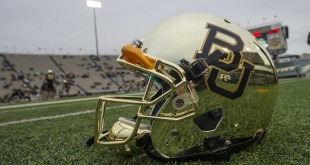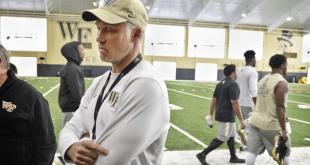Baylor University has been home to several serious issues, including a murder cover up and threatening to deport a student-athlete who committed elsewhere, but the latest will almost certainly result in heavy NCAA sanctions. Following the latest allegations, Baylor University conducted an external review of the institution’s handling of Title IX (and related) issues, which culminated in the release of a very damning report. This report found “a fundamental failure by Baylor to implement Title IX of the Education Amendments of 1972 (Title IX) and the Violence Against Women Reauthorization Act of 2013 (VAWA).” The external review uncovered flaws in the senior leadership’s actions and Baylor’s student conduct process, and even found examples of staff members hindering or discouraging either investigations or the complainants who needed to report these acts. While I will not fully cover the findings of the report (in short – they’re bad), by failing to conduct these investigations in a comprehensive manner, Baylor could be facing rather significant penalties from the NCAA.
Allow me to briefly compare Baylor’s problems here with the highly publicized case of Jerry Sandusky and Penn State. Penn State’s NCAA sanctions resulted from findings of Unethical Conduct and a lack of Institutional Control.[i] These charges led to a four-year postseason ban, significant reduction of scholarships, a hefty $60 million fine, and vacating 100+ wins.[ii] While terrible actions did happen there, I still maintain that the NCAA had no business bringing any penalties, as the bylaws did not apply. Unethical Conduct and Institutional Control apply to athletic competition, plain and simple. The NCAA does not police crimes, it polices infractions that inhibit or violate the objectives of the Association, namely “unjust” advantages that would give one institution a leg up against all others. In hammering Penn State, the NCAA interpreted its NCAA Bylaws more liberally than they ever have (likely as a result of the public mob mentality that was [rightly] prevalent at the time). Penn State’s child sex-abuse scandal involved football essentially only in that the guilty party was a member of the football staff; there was no recruiting or competitive advantage from Penn State’s offenses. The Clery Act and the Federal Government should have had plenty to say, but overall the NCAA broadly applied legislation to punish the institution.
The difference in Baylor’s actions is that these inadequate investigations directly affected the ability of football players to continue playing and remain on the team. Page ten of Baylor’s report indicates that “athletics and football personnel affirmatively chose not to report sexual violence and dating violence to an appropriate administrator outside of athletics.” In other cases, the football staff undertook their own inquiries in response to allegations, compromising what would otherwise have been a legitimate investigation, or tried to “actively divert cases from the student conduct or criminal processes.” Basically, Baylor’s staff was actively impeding what should have been institutional, or even criminal, investigations, with their own attempted method of discipline. This internal system circumvented institutional (and legal) procedures, which is one area the NCAA is happy to get involved.
As I have previously mentioned, the NCAA’s job is not to police crimes; however, it does fall under NCAA purview when arrangements are made for student-athletes that are not made for other students. The bylaws concerning benefits apply in a case where institutional staff members circumvent established policy (institutional, legal, etc.) and a student-athlete gets something that others don’t.
16.02.3 Extra Benefit.
An extra benefit is any special arrangement by an institutional employee or representative of the institution’s athletics interests to provide a student-athlete or the student-athlete family member or friend a benefit not expressly authorized by NCAA legislation. Receipt of a benefit by student-athletes or their family members or friends is not a violation of NCAA legislation if it is demonstrated that the same benefit is generally available to the institution’s students or their family members or friends or to a particular segment of the student body (e.g., international students, minority students) determined on a basis unrelated to athletics ability.
16.11.2.1 Benefits, Gifts and Services – Nonpermissible – General Rule.
The student-athlete shall not receive any extra benefit. The term “extra benefit” refers to any special arrangement by an institutional employee or representative of the institution’s athletics interests to provide the student-athlete or his or her family members or friends with a benefit not expressly authorized by NCAA legislation.
While this is a very open-ended area of the manual, these rules are designed to generally cover any instances of preferential treatment that are not otherwise permitted under NCAA legislation. This would cover the findings of Baylor’s report, where negligent and compromised sexual assault inquiries likely led to football players not facing punishment they would face under Baylor’s student conduct, or the law. One aberrant investigation, while serious, may not trigger anything from the NCAA’s perspective past a minor violation. Repeated egregious offenses of the same instance, regularly avoiding institutional policy, and a pattern of hindering if not blatantly covering up actions that would trigger significant sanctions from the institution (expulsion, notifying authorities) create the culture and failures mentioned in the report. With this systematic disregard of proper procedure that likely led to the continued participation of some football players, the NCAA can identify legitimate and overt actions that constitute both unethical conduct and a lack of institutional control within Baylor’s football program.
While it would not be a likable stance, Baylor Football could defend this possible accusation by saying the Title IX investigation issues were not specific to football players. If the football program was not treated any differently from students on campus, then theoretically there would be no NCAA violation. Unfortunately for Baylor, the fact that there is a specific section in the report titled “Barriers to Implementation of Title IX within Baylor’s Football Program,” in addition to the affirmative actions of athletics staff members, will likely crush that argument. With the high visibility of a successful athletic program, pressure will be on the NCAA to act. Due to the apparent involvement of both athletics staff members and football players that these actions benefited, I believe the NCAA and Baylor will be talking very soon about just how hard the hammer will come down.
[i] Several Bylaws from the NCAA Manual and Constitution were cited in the case, from Articles 2, 10, and 19, including Unethical Conduct and Institutional Control.
[ii] A settlement replaced the original Consent Decree which lightened some of these penalties, but the original investigation and ensuing NCAA penalties can still apply.
 The Sports Esquires Putting Sports on Trial
The Sports Esquires Putting Sports on Trial





2 comments
Pingback: Sports Law Links - The Sports Esquires
Pingback: Sports Law Links - The Sports Esquires